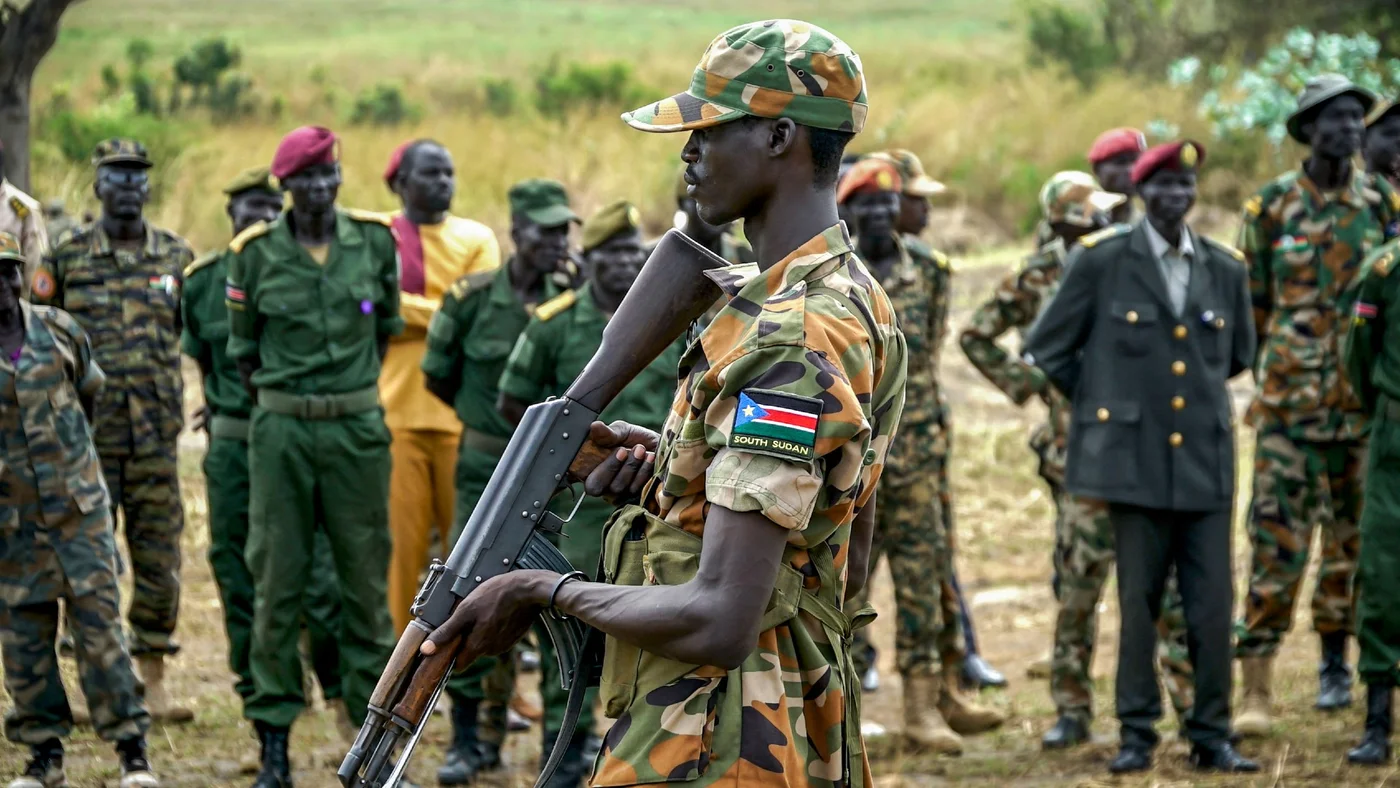AU mediators arrive in Juba to prevent escalation of South Sudan conflict

African Union (AU) mediators landed in South Sudan’s capital, Juba, on Wednesday, aiming to prevent a new civil war after First Vice President Riek Machar was placed under house arrest last week.
The AU delegation, which included former Burundian President Domitien Ndayizeye and former Kenyan judge Effie Owuor, arrived in Juba in a bid to de-escalate tensions and restore the fragile peace that has held since the end of the 2013-18 civil war.
The government of President Salva Kiir accuses Machar, a longtime rival, of plotting to ignite a fresh rebellion, heightening fears of a return to widespread violence.
Machar’s house arrest came just days after weeks of clashes between the South Sudanese military and the White Army militia in the northern Upper Nile state.
While Machar’s forces were allied with the White Army during the civil war, they have distanced themselves from the militia in recent years.
Despite this, accusations have mounted that Machar is involved in attempts to destabilize the country.
The arrival of the AU mediators is seen as a critical move to prevent the collapse of the 2018 peace deal, which ended the war that claimed hundreds of thousands of lives.
The AU’s Peace and Security Council, in a statement, called for Machar’s "immediate and unconditional release," stressing that the recent developments threaten to unravel the progress made in the peace process.
“The ongoing situation jeopardizes the peace efforts and could plunge the country back into conflict,” the Council warned.
Machar's political party, the Sudan People’s Liberation Movement-in-Opposition (SPLM-IO), expressed its support for the arrival of the AU’s “Council of the Wise,” viewing it as an important step in easing tensions.
The party welcomed the mediation efforts and reiterated its commitment to the peace process.
In a statement, the SPLM-IO said, "We warmly welcome the arrival of the Council of Wise as part of ongoing efforts to de-escalate tensions and support the peace process."
Kenya’s former Prime Minister Raila Odinga, representing an East African regional body, also visited Juba earlier this week to mediate between the opposing factions.
Raila met with President Kiir but was not granted a chance to meet Machar, a clear sign of the deepening rift between the two leaders.
Analysts suggest that Kiir’s actions, including the detention of Machar, may be an attempt to consolidate his position amid growing internal dissatisfaction and the worsening security situation in the region, partly fueled by the conflict in neighboring Sudan.
The 2013-18 civil war in South Sudan was largely driven by ethnic divisions, with Kiir’s Dinka group and Machar’s Nuer supporters fighting for control.
The legacy of these divisions still looms large over the country’s political landscape, further complicating the ongoing peace efforts.
As the AU delegation begins its crucial talks, the international community is watching closely, hoping for a breakthrough that could stabilize the country and prevent further bloodshed.
The outcome of these talks could be pivotal in shaping South Sudan’s future and securing long-term peace in the region.
